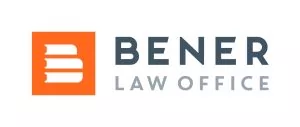The Act on Corporate Due Diligence Obligations for the Prevention of Human Rights Violations in Supply Chains (in German: Lieferkettensorgfaltsgesetz) ("Act"), which is aiming to promote social and environmental sustainability with primary focus on preventing human rights and environmental law violations in global supply chains came into force as of 1 January 2023.
The Act applies to enterprises having their central administration, principle place of business, administrative headquarters, branch offices or their statutory seats in Germany and having at least 3,000 employees in Germany (employees posted abroad are included); regardless of their legal form or whether they were incorporated under German laws. As of 1 January 2024, the threshold regarding the number of employee will be reduced and the Act will also apply to the enterprises having at least 1,000 employees (further details regarding the calculation method of the number of the employees are stipulated in the Act in detailed manner).
The enterprises, which are subject to the Act, are obliged to exercise human rights and environment related due diligence within their supply chains with the aim of preventing and minimizing any risks regarding the human rights or environment. The due diligence obligations include:
- Establishment of a risk management system,
- Designation of responsible person(s) within the enterprise, such as appointing a human rights officer,
- Performance of regular risk analysis,
- Issuance of a policy statement on its human rights strategy,
- Establishment of preventive measures in its own area of business and vis-à-vis direct suppliers,
- Taking remedial action in case discovering a violation of a human rights-related or an environment-related obligation,
- Establishment of a complaints procedure,
- Implementation of due diligence obligations with regard to risks at indirect suppliers, and
- Implementation of documentation and reporting measures connected to the fulfillment of mandatory due diligence obligations.
If enterprises fail to comply with their legal obligations stipulated in the Act, administrative fines may be imposed. These amounts may be up to EUR 8 million or in the case of enterprises with an average annual turnover of EUR 400 million or more, a penalty of up to 2% of their worldwide annual turnover. If enterprises covered by the scope of the Act fails to comply with their requirements, exclusion from winning public contracts in Germany for up to three years may also be a consequence of the non-compliance.
As the "supply chain" mentioned in the Act refers to all products and services of the enterprises and includes all steps in Germany and abroad - starting from the extraction of the raw materials to the delivery to the end customer - the Act also imposes obligations to direct and indirect suppliers of the abovementioned enterprises. Therefore, as a part of the supply chain, all suppliers of the said enterprises in international level will also become subject to the Act and the Turkish suppliers, which are involved in the supply chains of German companies, will also need to become compliant with the Act and implement extensive compliance measures in accordance with the Act.
The content of this article is intended to provide a general guide to the subject matter. Specialist advice should be sought about your specific circumstances.


